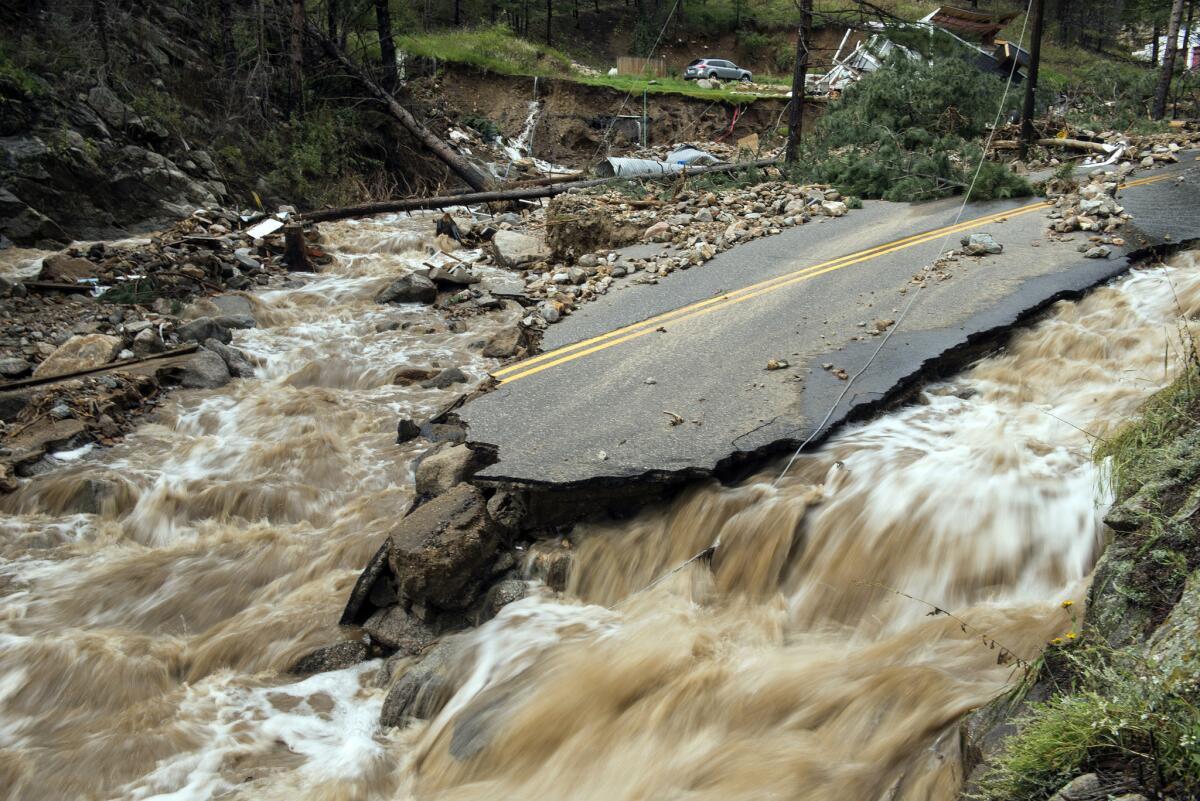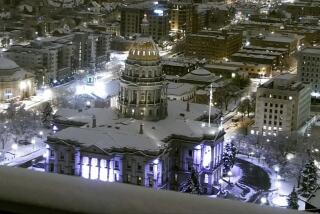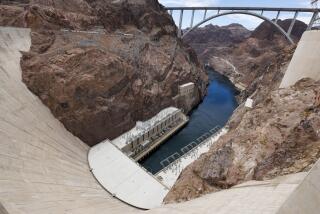Meteorology and geography collide in Colorado flooding

Deadly flooding in Boulder, Colo., was due to the chance collision of meteorology, geography and urban development, according to weather and climate experts.
As a fleet of U.S. military helicopters conducted search and rescue efforts Monday, more than 1,200 people remained unaccounted for following a week of intense rain and flash floods. At least seven people were reported killed in the extreme weather.
Hardest hit was the city of Boulder, which sits at the mouth of Boulder Canyon, a powerful funnel for rains pouring into the steep Front Range, where years of drought have given way to dense, hard-packed soil. The canyon watershed leads to Boulder Creek, a waterway that bisects the city of almost 100,000 people.
Boulder has been subject to rapid rain runoff in the past, and emergency officials have long known that much of the central city area along Boulder Creek would be at high risk in the face of a storm so powerful that it occurred only once every 100 years.
Just such a storm began taking shape early last week, when a mass of wet monsoonal air flowed north from Mexico and found itself trapped over the Boulder region by a high-pressure weather system in central Canada and the upper Great Plains of the United States.
Between Sept 9 and Sept. 13, 14.6 inches of rain poured into Boulder, with even greater precipitation occurring in the mountains to the west. On average, Boulder experiences 1.6 inches of rainfall during the month of September.
“They had 10 times their average rainfall in just four days,” said Bill Patzert, a climatologist at NASA’s Jet Propulsion Laboratory in La Canada Flintridge.
Though about a decade of drought has diminished vegetation that might otherwise work to slow rain runoff, urban development has also created areas where rainfall moves rapidly across populated areas.
“Of course, over the years, Boulder has grown and grown and like most cities, the more it grows, the worse the runoff gets,” Patzert said. “That’s because there’s more parking lots, more driveways, more roads, etc.”
Fortunately, conditions were easing up after the weekend.
“What’s happening this week is dry air from the west is kind of winning the battle. It’s pushing this compressed zone of moisture further to the east,” said Alex Sosnowski, expert senior meteorologist with the AccuWeather forecasting service.
“We’re still going to have some spotty thunderstorm activity in the next few days over Colorado, and that in turn will produce some isolated incidents of flash flooding, but in general I think streams and rivers will tend to recede.”
Asked whether the extreme weather was the result of climate change, Patzert said it was impossible to say, but that he seriously doubted it.
“I think this is a matter of their founding fathers building in a precarious location and some intense meteorology,” Patzert said.







